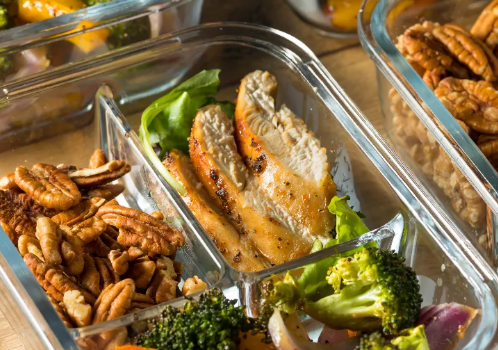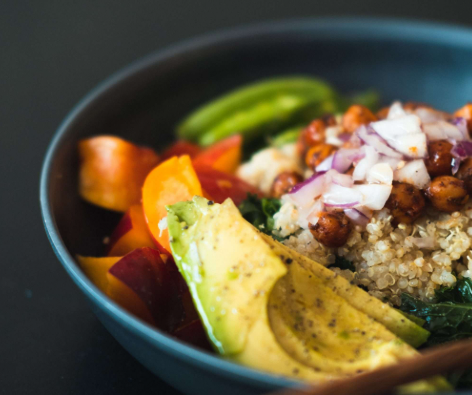
In today’s fast-paced world, balancing work, personal life, and healthy eating can be challenging. After a long day, cooking dinner may be the last thing you want to do, making it tempting to opt for takeout. However, meal prepping offers a simple and efficient solution to save time, reduce stress, and eat healthier. If you’re new to meal prepping or want to streamline your process, here are some practical tips to get you started.
What is Meal Prepping?
Meal prepping involves planning and preparing your meals ahead of time, helping you save both time and money while ensuring you eat nutritious food. Depending on your goals and lifestyle, meal prepping can involve different methods like batch cooking, ingredient preparation, or making fully prepared meals for the week.
- Batch Cooking: Preparing large portions of a specific dish and dividing it into containers for later use.
- Ingredient Preparation: Prepping ingredients, like chopped vegetables, which can be quickly assembled into meals.
- Ready-to-Eat Meals: Cooking individual meals in advance and storing them for the week.
Top Tips for Successful Meal Prepping
- Use What You Already Have
Start by checking your pantry, fridge, and freezer to see what ingredients you already have. This reduces food waste and ensures you’re making meals with what you already own. For instance, canned beans or frozen vegetables can easily be turned into a hearty stew or chili, saving you both time and money. - Organize Your Shopping List
Supermarkets can be overwhelming with aisles designed to encourage impulse buying. To avoid unnecessary purchases, create a shopping list organized by store layout. For example, place items like tomatoes and spinach next to each other since they’re in the same section. This strategy keeps you focused and ensures you only buy what you need. - Check Your Stock Before Shopping
Before heading to the store, take inventory of what’s already in your kitchen. This prevents you from buying duplicates and helps reduce food waste. By using what you already have, you’ll make more efficient use of your groceries. - Balance Your Meals
When meal prepping, aim for well-rounded meals by including a variety of food groups. Ensure each meal has a mix of vegetables, proteins, healthy fats, and complex carbs. This balanced approach will help keep your energy levels steady and ensure you’re getting a broad spectrum of nutrients. - Create a Menu
Planning meals ahead of time can eliminate the stress of deciding what to eat each day. Make a list of your favorite dishes, and try new recipes to keep things exciting. A weekly menu also prevents food fatigue and encourages you to try different flavors. For inspiration, consider exploring plant-based meals or international cuisines. - Batch Cook a Flexible Base
Prepare versatile meals that can be adapted throughout the week. For example, a simple tomato-based sauce can be used for pasta, turned into a soup, or spread on pizza. This reduces the need for multiple separate meals and allows for quick and easy dinner options. - Invest in Compartmentalized Containers
Proper storage is key to maintaining the freshness of your prepped meals. Use containers with compartments to keep different food items separate, preserving their taste, texture, and freshness. For instance, store rice and sauce separately to prevent sogginess. - Prioritize Food Safety
To ensure your prepped meals stay safe and fresh, it’s essential to follow food safety guidelines. After cooking, allow meals to cool before storing them. Label everything with the date of preparation, so you know when to consume it. Also, make sure your fridge is set between 3-5°C, and your freezer is at -18°C. - Know How Long to Keep Food
Each type of food has its own shelf life, so it’s important to be aware of how long your prepped meals will last. Refer to labels for guidance on freezing and storage durations. When reheating meals, ensure they’re heated thoroughly to avoid any foodborne illnesses.
By following these tips, meal prepping becomes an easy and rewarding habit that helps you stay on track with healthy eating, saves time, and cuts down on food waste. Whether you’re cooking for the week ahead or just prepping ingredients, meal prepping is a simple solution to eat healthier and save effort in the kitchen.










